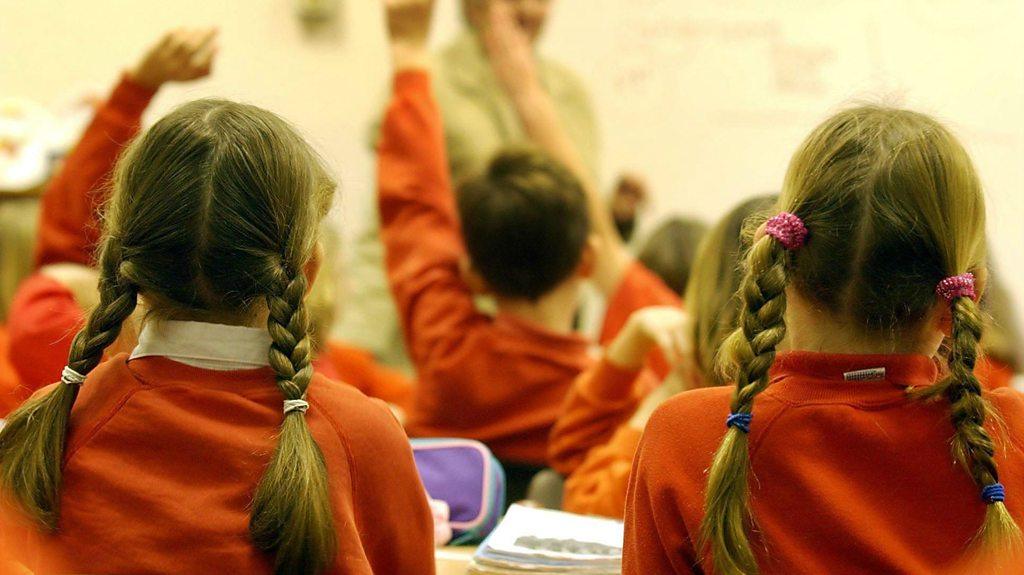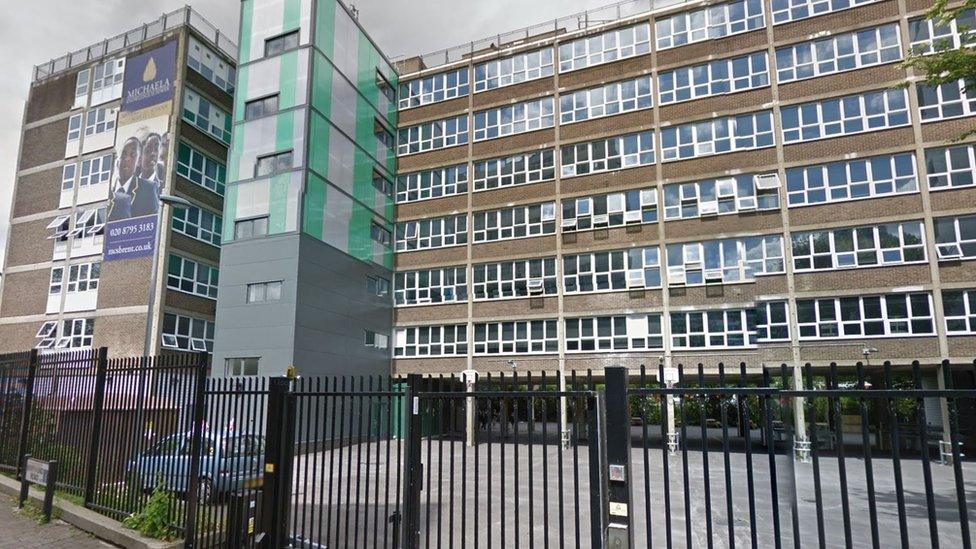Poor behaviour 'not taken seriously enough in schools'
- Published
- comments

The issue of poor behaviour in schools has not been taken seriously enough, says a review by England's behaviour tsar Tom Bennett.
The extent of the problem has been underestimated in official data kept by Ofsted, he warns.
Schools with particular problems should be funded to provide internal units to deal with troubled pupils, he added.
Ofsted said effective behaviour management was essential for pupils' learning, development and wellbeing.
Mr Bennett told the BBC: "Behaviour has not been taken seriously enough in the past, and the official data underestimates the extent of the problem in all schools."
'Clear rules'
He said he wanted behaviour to be tracked at the school level and pulled together in an anonymised survey.
In his report, Creating a Culture: How school leaders can optimise behaviour, Mr Bennett said there was sufficient evidence that there was enough of a problem nationally with behaviour for it to be a concern.
Even though, he said, that in any school, at most times, behaviour was largely civil and co-operative.
Mr Bennett said strong leadership was key to ensuring better behaviour, and called for head teachers to be offered training in how to devise all-encompassing behaviour policies.
Behaviour advisor Tom Bennett tells Today why "habits" and "routine" are important for good behaviour
He also suggested head teachers be subject to a new certification process that required them to show they had an understanding of behaviour management.
"Teachers alone, no matter how skilled, cannot intervene with the same impact as a school leader can," he said.
Consequences
Instead, a culture of good behaviour must be well-established and universally known, Mr Bennett said.
These should include clear rules, consequences, sanctions and rewards, as well as expectations for behaviour in different parts of the school.
Mr Bennett also called for the Department for Education to direct funds to schools with particular behaviour challenges to fund the creation of internal inclusion units.
These would offer targeted specialist intervention and help pupils reintegrate back into the mainstream school community when the pupil was ready, he said.
The Department for Education welcomed the report, and said it would use its findings to inform ongoing work to help and support schools to deal with this issue.
Edward Timpson, Minister for Vulnerable Children and Families, said: "We want every child to learn in an environment free from disruption. Tom Bennett's report is relevant, insightful and draws on tried and tested methods that will provide real help to teachers across the country.
"I would encourage all school leaders to use its findings and practical examples to help create a positive environment that addresses the needs of their pupils."
'Omissions'
Ofsted said: "We will discuss with the Department for Education matters identified for government which are relevant to Ofsted and consider in detail the recommendations for inspection.
"Whilst no immediate changes are proposed to the current school inspection arrangements, any actions in response to the recommendations will be considered as part of our future plans."
Head of the Association of Teachers and Lecturers Dr Mary Bousted said: "It's refreshing that the report recognises the impact of workload on the capacity of staff to deliver positive but time-heavy behaviour interventions, and the need for investment in high-quality behaviour training for teachers..
"However, there are some worrying omissions in this report; special educational needs are hardly mentioned and the role of external agencies for health, child and adolescent mental health services, social care and the police is conspicuous by its absence.
"We are also concerned that the emphasis on the role of school leaders, while obviously important, leaves little space for all school staff to participate in creating a positive culture and designing a whole-school behaviour policy."
- Published24 March 2017

- Published28 November 2016

- Published30 January 2017
